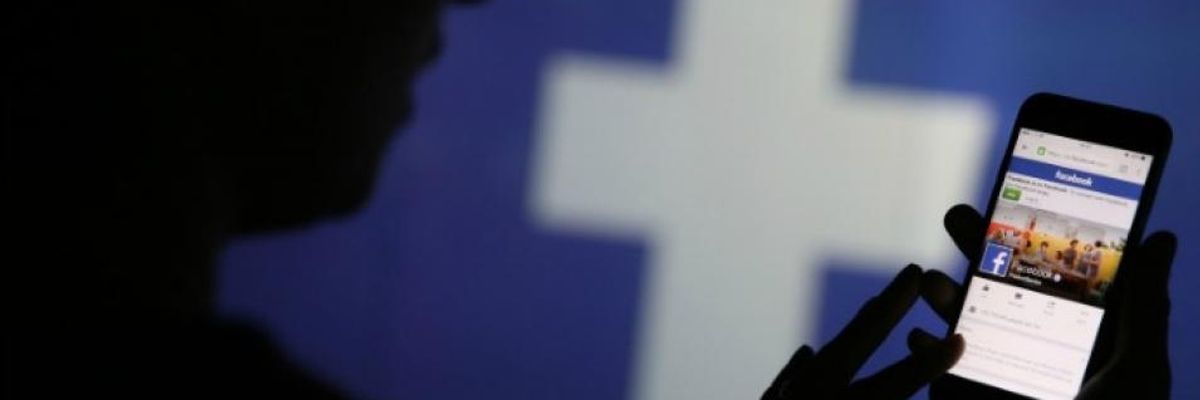The latest critics of Facebook's so-called fact-checking operation--launched shortly after the 2016 presidential election with the supposed goal of identifying and removing fraudulent news stories from the platform--are some of the the fact-checkers themselves.
"They're not taking anything seriously. They are more interested in making themselves look good and passing the buck."
--Brooke Binkowski, former Snopes managing editor
A Guardian report published Thursday quotes former and current fact-checkers who are fed up with what they describe as nothing more than a public relations stunt.
"They've essentially used us for crisis PR," said Brooke Binkowski, former managing editor of the fact-checking site Snopes, one of over 40 outlets that have partnered with Facebook for the project. "They're not taking anything seriously. They are more interested in making themselves look good and passing the buck... They clearly don't care."
While Facebook's effort to quell fears of "fake news" initially were praised by a wide range of media professionals, many have grown increasingly concerned about the consequences of the social media giant serving as the arbiter of what is and isn't trustworthy. Now, Binkowski and others have added their voices.
As an example of her frustration, Binkowski pointed to "bringing up Myanmar over and over and over," as hate speech and propaganda flooded social media sites while the Myanmar military committed genocide, crimes against humanity, and war crimes against Rohingya Muslims, forcing more than half a million refugees to flee to neighboring Bangladesh.
Facebook not only ignored her concerns, said Binkowski--who has reported on immigration and refugees--"they were absolutely resistant." Binkowski left Snopes this year and now runs her own site.
Recent revelations about the company's practices beyond censoring what news stories are circulated on the platform have also raised concern among those still working for Facebook partners.
"Why should we trust Facebook when it's pushing the same rumors that its own fact-checkers are calling fake news?" asked a current Facebook fact-checker, referencing the company's admission last month that it hired a Republican-affiliated opposition research firm to dig up dirt on billionaire philanthropist George Soros, a frequent target of right-wing anti-Semitic conspiracy theories.
"They are a terrible company and, on a personal level, I don't want to have anything to do with them."
--Facebook fact-checker
"It's worth asking, 'how do they treat stories about George Soros on the platform knowing they specifically pay people to try to link political enemies to him?'" added the unnamed source, who has advocated for ending their news outlet's partnership. "Working with Facebook makes us look bad."
"They are a terrible company and, on a personal level," another anonymous fact-checker told the newspaper, "I don't want to have anything to do with them."
Kim LaCapria--who recently left Snopes to work for Binkowski--agrees Facebook wants the "appearance of trying to prevent damage without actually doing anything." As the Guardian reports, both believed the social media giant failed to protect those actually doing the work:
Once Snopes became an official partner, there was also a noticeable increase in online harassment, death threats, and attacks from far-right users and prominent conservatives who accused the fact-checkers and Facebook of having a left-wing bias and agenda, Binkowski said.
When reporters got caught in these kinds of firestorms, Facebook let individual journalists shoulder the blame, she said: "They threw us under the bus at every opportunity."
Added LaCapria: "We were just collateral damage."
Facebook, for its part, said through a spokesperson that it has incorporated safety training for new third-party fact-checkers, and that based on feedback from its partners, the company plans to share private "quarterly reports" with them, and is "looking for more statistics to share externally in early 2019."
Snopes founder and CEO David Mikkelson told the Guardian he does not share the former fact-checkers' concerns about partnering with Facebook, and he doesn't know anything about the quarterly reports, but in terms of how his company's work is impacting others on the platform, "It's up to Facebook to decide the relative success of it."

